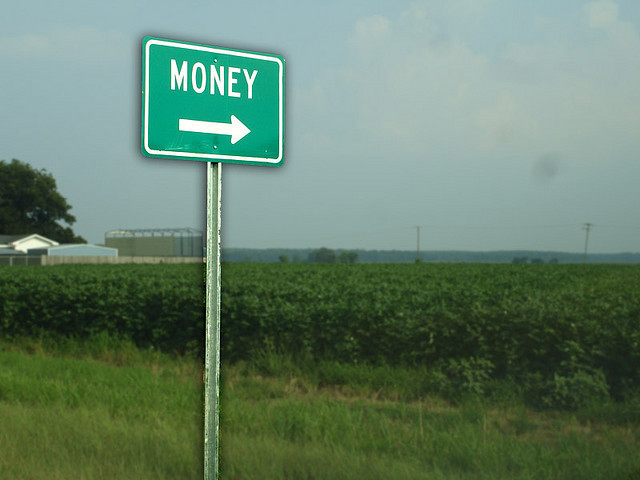
By now, the story of patent trolls has become well-known: a small company with no products of its own threatens lawsuits against larger companies who inadvertently infringe its portfolio of broad patents. The scenario has become so common that we don't even try to cover all the cases here at Ars. If we did, we'd have little time to write about much else.
But anecdotal evidence is one thing. Data is another. Three Boston University researchers have produced a rigorous empirical estimate of the cost of patent trolling. And the number is breath-taking: patent trolls ("non-practicing entity" is the clinical term) have cost publicly traded defendants $500 billion since 1990. And the problem has become most severe in recent years. In the last four years, the costs have averaged $83 billion per year. The study says this is more than a quarter of US industrial research and development spending during those years.
Two of the study's authors, James Bessen and Mike Meurer, wrote Patent Failure, an empirical study of the patent system that has been widely read and cited since its publication in 2008. They were joined for this paper by a colleague, Jennifer Ford.
Stock market events
It's hard to measure the costs of litigation directly. The most obvious costs for defendants are legal fees and payouts to plaintiffs, but these are not necessarily the largest costs. Often, indirect costs like employee distraction, legal uncertainty, and the need to redesign or drop key products are even more significant.
The trio use a clever method known as a stock market event study to estimate these costs. The theory is simple: a company's stock price represents the stock market's best estimation of the company's value. If the company's stock drops by, say, two percent in the days after a lawsuit is filed, then the market thinks the lawsuit will cost the company two percent of its market capitalization.
Of course, this wouldn't be a very rigorous technique if they were looking at a single lawsuit. Any number of factors could have affected the firm's stock price that same week. Maybe the company released a bad earnings report the next day. But with a large sample of companies, these random factors should mostly cancel each other out, leaving the market's rough estimate of how much patent lawsuits cost their targets.
The authors used a database of 1,630 patent troll lawsuits compiled by Patent Freedom. Because many of the lawsuits had multiple defendants, there was a total of 4,114 plaintiff-defendant pairs. The median defendant over all of these pairs lost $20.4 million in market capitalization, while the mean loss was $122 million.
Small private gains, large social costs
Of course, losses to defendants are not necessarily losses to society. Patent trolls often claim they are just helping patent holders get the royalties that are owed to them. So if most of that $500 billion were winding up in the pockets of inventors, perhaps the system would be working as intended.
To test this hypothesis, the authors focused on 14 plaintiffs who were publicly traded companies. These firms' lawsuits accounted for $88 billion of lost wealth for defendants. Yet the total revenue of these companies was only $7.6 billion. This suggests that the original inventors got less than 10 percent of defendants' lost wealth. And the real number is likely much lower, because some of the $7.6 billion came from unrelated lawsuits, and we're willing to bet the patent lawyers took a big cut.
Software patents accounted for about 62 percent of the lawsuits. In contrast, only two percent of the lawsuits involved drug or chemical patents, and six percent involved mechanical patents. The authors didn't necessarily start with a random sample of all patent litigation, so this result should be interpreted with caution. Still, it's safe to say that the proliferation of software patents has been a major contributor to the explosion of patent litigation.
In their 2008 book, Bessen and Meurer showed that, outside the chemical and pharmaceutical industries, the cost of patent litigation had already begun to exceed the rewards to inventors by the year 2000. Their new work suggests that the problem has gotten much, much worse since then.
These results are important because the patent system is supposed to reward companies who invest in innovation. Yet thanks to the growing blizzard of frivolous patent lawsuits against technology companies, the patent system is actually becoming a net disincentive to innovation, especially software. We hope Congress and the Supreme Court are paying attention.
Listing image by Photograph by Dave Barger
reader comments
91